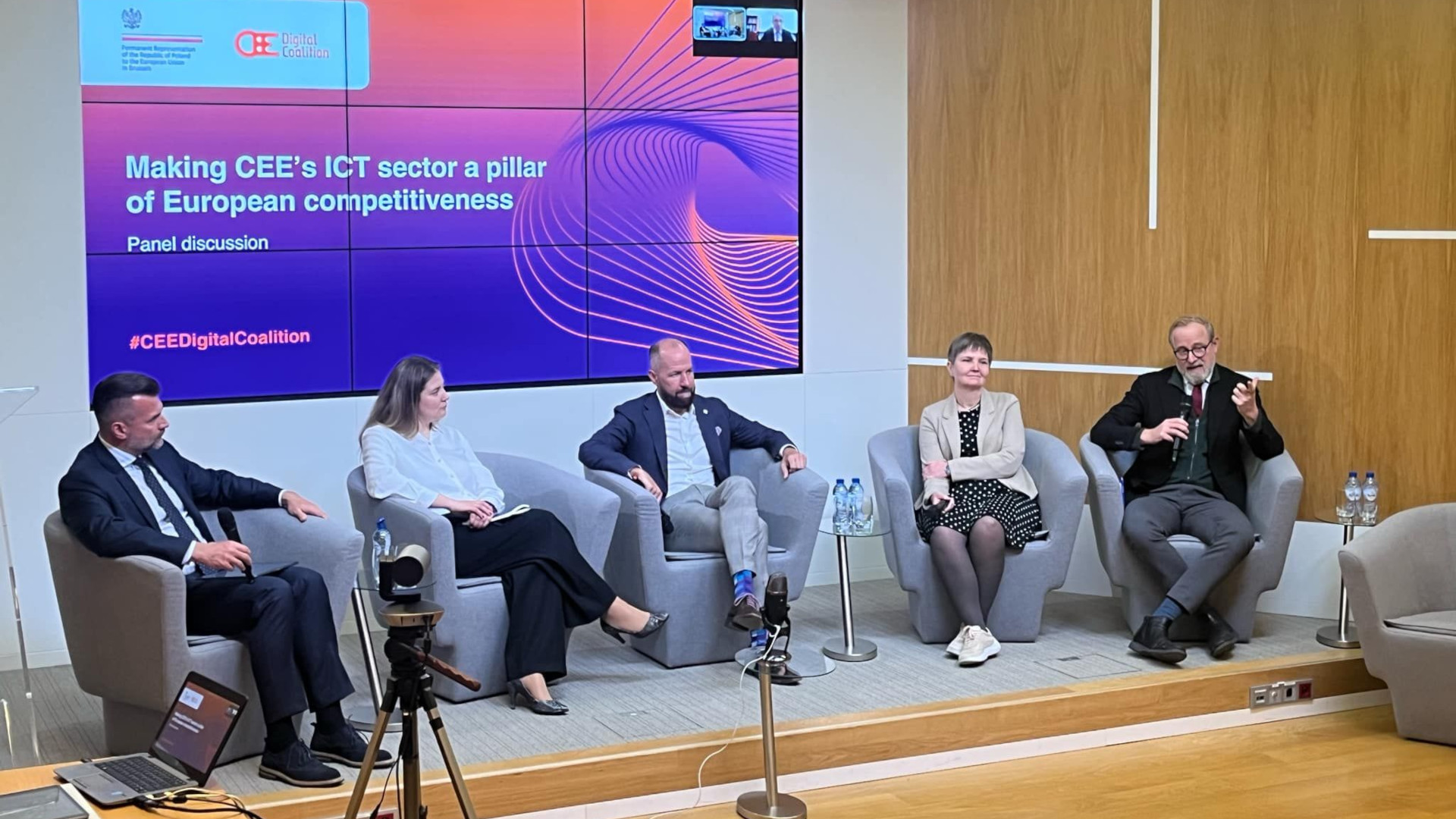The upcoming Polish presidency at the Council of the EU may be a turning point for Europe’s digital agenda - experts argued in Brussels

Central Eastern Europe suffers from lack of cooperation and coordination backed by a strategic approach to digital issues among our countries. Education will be one of the keys to unlocking our region’s potential. Acceleration of technology must be matched by the pace of improving our competences and skills, necessary to grow our region’s digital economy. In order to close the technological and economic gap, Europe will also have to overcome the challenges related to fragmentation of the internal market and excess of red tape, both stopping innovative companies from scaling up and building our competitiveness - experts argued during the session held earlier today at the Permanent Representation of the Republic of Poland to the European Union in Brussels.
The recent session held at the Permanent Representation of the Republic of Poland to the European Union, co-organised by CEE Digital Coalition featured a presentation of our latest report - “The ICT sector in the CEE countries as a regional driver of growth” followed by a panel discussion among leading industry experts as well as a national and European authorities involved in the EU digital agenda.
The discussion held at the heated debate on the proposed digital priorities of the upcoming Polish presidency of the Council of the European Union, factors vital to the potential of our region’s ICT sector, emerging trends and challenges we need to overcome in order to make the most of the emerging EU economy powerhouse.
Need a more coherent approach. Breakthrough could be around the corner
Experts participating in the debate stressed the importance of closer cooperation of CEE countries on the European forum, especially given the current dynamics and position of the region - Central Eastern Europe needs to foster cooperation and coordination of activities regarding digital issues. Exports of commercial ICT services have increased in all CEE economies more than six-fold between 2005 and 2021, with Estonia leading the pack. During the same period, Western European countries experienced a three-fold increase - panelists argued.
They did note that there is much room for improvement. – There are many challenges we need to overcome in the region. In order to close the technological and economic gap between Europe and global competitors, we have to overcome the challenges related to fragmentation of the internal market and excess of red tape, both stopping innovative companies from scaling up and building our competitiveness. Education will be one of the keys to unlocking our region’s potential in particular - guests of the meeting said.
Opportunity stemming from the Polish presidency
According to the participants, the upcoming Polish presidency of the Council of the European Union may be the chance to set the digital course for Europe. Officials did shed some light on its goals. - We have set our digital priorities. Cybersecurity will be the first one. We will strive for implementing common methodologies of reporting and addressing massive incidents. We will also focus on AI and related breakthrough technologies and their adoption in the public sector. We also want to reflect on the approach to regulations and give the market and enterprises time to implement and adapt to the already existing great number of regulations rather than creating even more acts. Finally, digital diplomacy will be high on our list of digital priorities - Piotr Kobielski, Head of EU 2025 Presidency Task Force at the Ministry of Digital Affairs of Poland explained.
Industry representatives did share their expectations for the current EU mandate. - Regulatory reform promoting simple, coherent framework, taking the economic outcome into consideration as well as institutional reform connecting national regulators with central authority, tying competitiveness with enforcement are some of the changes that need to take place in the EU for it to become more competitive and allow our region to thrive - said Michał Kanownik, president of Digital Poland Association and a co-host of the event.